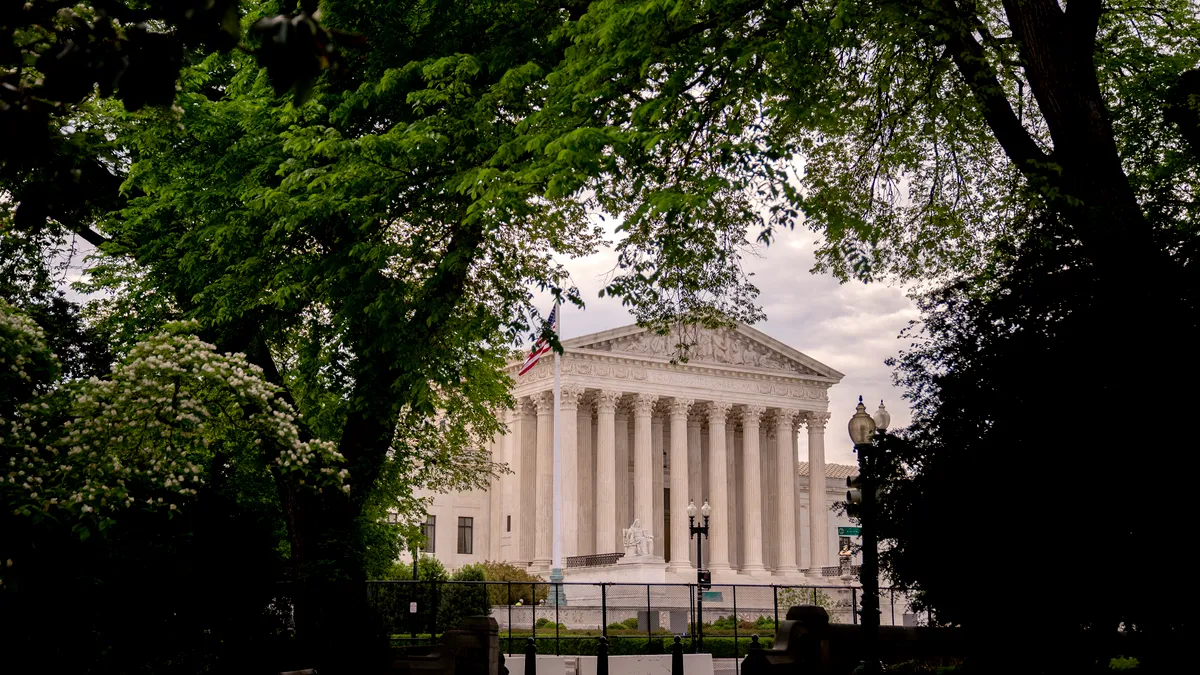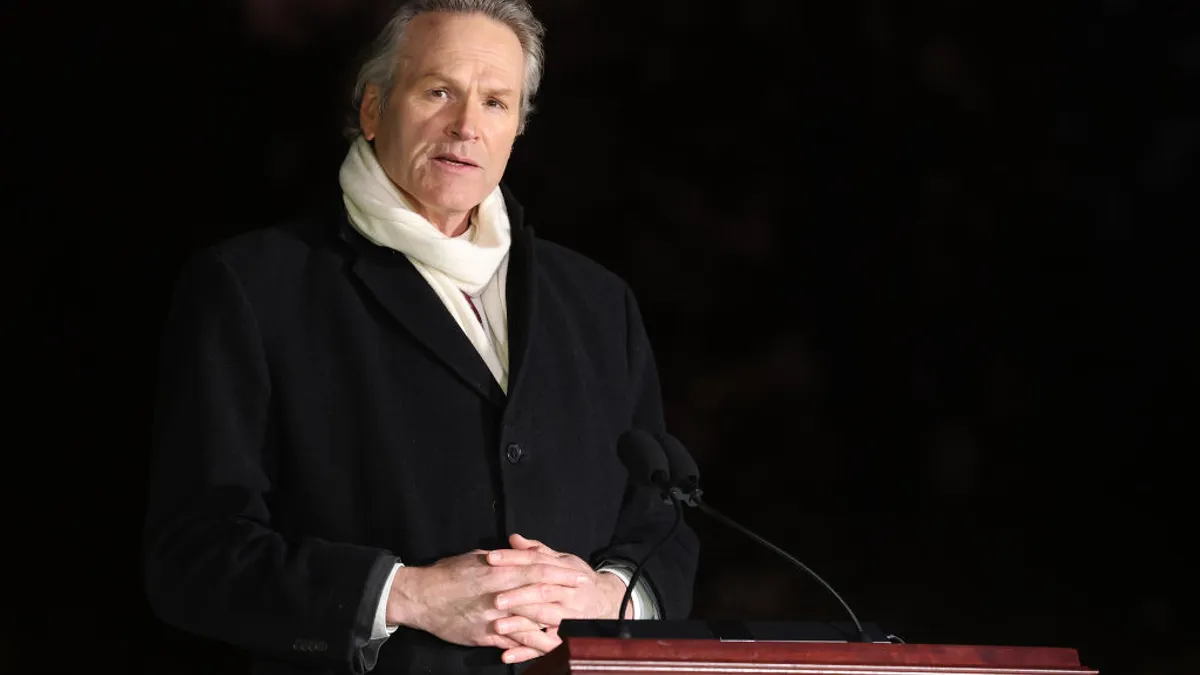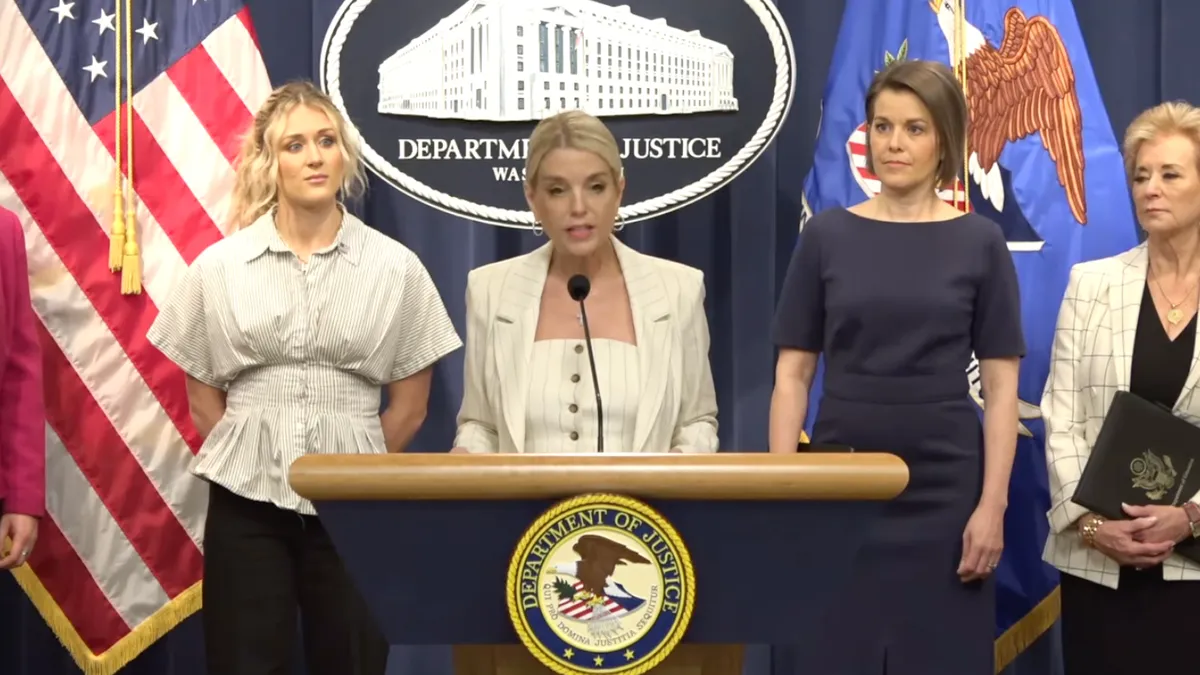The U.S. Supreme Court heard oral arguments Wednesday in a case that could have significant consequences on the use of public funding for student tuition at schools with religious affiliations and teachings.
The justices spent much of the nearly two-hour session questioning attorneys on both sides of Carson v. Makin (2021) about whether a public tuition subsidy program that excludes religious schools discriminates against families who want their children to have a faith-based education, as well as the potential harm of allowing public funding to support religious instruction.
Although the case centers on a small tuition program for students in rural Maine with limited access to public schools, legal experts and advocates on both sides of the debate say the high court's decision could have widespread ramifications for either opening more opportunities for public tuition-based programs or severely limiting their availability. The justices are expected to issue a decision next year.
Use versus status
The court is poised to answer a question unresolved from Espinoza v. Montana Department of Revenue (2019): "Does a state violate the Religion Clauses or Equal Protection Clause of the United States Constitution by prohibiting students participating in an otherwise generally available student-aid program from choosing to use their aid to attend schools that provide religious, or ‘sectarian,’ instruction?"
In Espinoza, the 5-4 decision said Montana's state-based scholarship program using taxpayer funds cannot exclude schools that identify as religious. However, it did not fully address if the state could exclude institutions or families from participation because the funding could support religious instruction.
During Wednesday’s oral arguments in Carson, this "use versus status" issue was discussed, with justices providing hypothetical situations that could influence Maine's acceptance or rejection of religious schools' participation in its specific program.
"The status-use concept is really a concept that applies in subsidy cases," said Associate Justice Elena Kagan, "and what it has been intended to say is that the state generally doesn't have to subsidize exercise of a right. You know, we can't put you in jail for saying something. We also can't deprive you of an unrelated benefit for saying something."
Also central to arguments was the question of discrimination — both toward faith-based schools when secular education is favored, and when religious schools exclude participation based on sexual identity, disability status or other characteristics that conflict with their religious teachings.
"Religious discrimination is religious discrimination, and unless it can survive strict scrutiny, it is unconstitutional," said Michael Bindas, a senior attorney with the Institute for Justice who represented the petitioners in the oral argument.
Associate Justice Brett Kavanaugh and other conservative justices pressed attorneys about discrimination against schools on the basis of religion.
"Our case law suggests that discriminating against all religions as compared to secular — comparable secular — is discriminatory, just as it is discriminatory to say exclude the Catholic and the Jewish and include the Protestant," said Kavanaugh.
Christopher Taub, chief deputy attorney general of Maine, defended the state's tuition assistance program as not discriminatory. "What we are trying to achieve are schools that are religiously neutral," he said.
Associate Justice Sonia Sotomayor asked about discrimination against students wanting to enroll in religious schools through this program: "Is this program permitted to say, with respect to the students if they meet your academic requirements, 'you can't discriminate?'"
Bindas responded: "It's important to remember that schools that welcome students of all stripes, that do not consider sexual orientation or gender identity in hiring, in admissions, or for any other basis are just as excluded from this program if they teach that message of inclusiveness and diversity through the lens of faith."
Potential expansion of school choice
The case was filed against Pender Makin in her role as commissioner of the Maine Department of Education by two sets of parents who live in districts without their own secondary schools and wanted to send their children to religiously affiliated schools. The state's tuition assistance program allows families without access to local public schools to attend either public schools in other districts or private schools.
Those private schools can have religious affiliations but would not be eligible to accept state-funded tuition if they provided mandatory religious instruction or promoted religion. For example, a religion-based school could have optional chapel services but not mandate religious services for students, Taub told the justices.
The U.S. Court of Appeals for the 1st Circuit ruled against the parents, saying Maine did not violate the First Amendment's Free Exercise Clause or Establishment Clause because the law doesn't place restrictions based on religious identity but because of "religious use."
Several friend-of-the-court briefs were filed ahead of oral arguments. In a joint amicus brief from the National School Boards Association; The School Superintendents Association; the National Association of Secondary School Principals and others, the organizations said a high court decision agreeing with the parents would "undermine support of public education throughout the nation" and be "opening the gate for widespread public funding of private schools."
There are 27 voucher programs in 16 states and the District of Columbia, according to an analysis earlier this year from the Education Commission of the States. ECS also found in 2019, there were 22 scholarship tax credit programs in 17 states.
Leslie Hiner, vice president of legal affairs for EdChoice, said expanding school choice programs, including participation of religious schools, would have positive implications for families who want to choose a school that best fits their values.
"I'm hoping that this decision will answer some of the lingering questions and give states that certainty that they know, OK for real, school choice is constitutional," she said.
Hiner, who was in Maine as she listened to a recording of the oral arguments in Washington, D.C., disputes religious schools discriminate against students on the basis of sexual oriententation or other characteristics.
"What we see actually is the opposite," she said. Students with gender identity issues "need to go someplace where they're going to be welcomed" and "they will often look for schools of faith because a school of faith will value the life of that child and believe that a child is valued in the eyes of God," Hiner said.
Joshua Dunn, a professor and chair of the Department of Political Science at the University of Colorado, Colorado Springs, said he sees three potential scenarios on how the justices will act if they don't dismiss the case for lack of standing.
He predicts, based on Wednesday's arguments, the high court will overturn the lower court by determining Maine's program is discriminatory toward religious identity and use. That decision would likely lead to expanded school choice efforts, he said.
"There'll be people who would use this to provide some political momentum for them to try to increase these types of programs in states around the country. So some of it would just depend on what happens going forward. I mean, what's the political response?" Dunn said.
The other two potential outcomes, according to Dunn, are: The high court sides with Maine, saying it's reasonable for states to make judgments about how families can spend public funding for private schools, and the high court overturns the lower court by determining Maine's program discriminates based on a school's religious identity, leaving the relevance of religious "use" or activity unanswered.
Correction: In a previous version of this article, the case in question was misidentified in the subhead and teaser line.




















